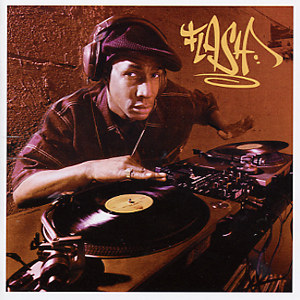Cipher Kenni gives his perspective on today's Hip Hop check out a cipher kenni freestyle
|
Hip Hop played a big part in bringing peace from a gang life for many. Self expression through graffiti, bboy, beatboxing, the emcee, the dj, the knowledge all was a way of expressing ourselves with out the guns, weapons, violence. We instead battled as crews against each other using the elements of hip hop. Some of these expressions were almost like a cry for help is how it was for some when no one else would listen. For those who are unfamiliar with the Zulu Nation, they began as an organization founded by Afrika Bambaataa at Stevenson High School in the Bronx. Back than it was simply known as 'The Organization'. Bam who once lived the gang lifestyle and was trying to change his ways and saw the newly formed group as a way out. Bam who was known for reading and staying up on the teachings of Elijah Muhammad and other African American leaders, changed the name to Zulu Nation after watching a movie that told the tale of the well known South African tribe.. Bam was inspired by their resistance to Dutch settlers.
...
Read more »
| |
The Godfather of Hip Hop, Afrika Bambaata was a panelist at the Intergenerational Forum, a discussion addressing misconceptions with an effort on finding common ground moderated by Davey D. It took place in Los Angeles at Leimert Park. Interview by Alex Alonso
Street Gangs Media Group, http://www.streetgangs.com/magazine
|
What Is Hip Hop Culture? Too many people are unclear as to what Hip Hop Culture really is and tend to use the term frivolously. Hip Hop Culture is commonly recognized by its main elements: Graffiti, Djing, Breakdancing (B-boying), Mcing, and Beatboxing. These elements are forms of art designed to express a deeper meaning. At its core, Hip Hop is also much more than art and entertainment. Hip Hop is the constantly evolving spirit and consciousness of urban youth that keeps recreating itself in a never-ending cycle. It is joy, sorrow, pleasure, pain, victory, defeat, anger, happiness, confusion, clarity, humor, intensity, dream, nightmare, life, death, and everything else in between. It is the spirit that connects the past to the present and lays a path towards the future. The spirit of Hip Hop is the same as Jazz, Reggae, Blues and a multitude of other types of expressions. Hip Hop Culture cannot be assimilated, integrated, diluted, watered-down, sold for profit, or pimped. It will always exist, in this incarnation or another. Hip Hop is life and all it has to offer. This knowledge lays the foundation for all those who thought of Hip Hop as nothing more than entertainment. Hip Hop!
Hip hop teaches the history of the inner city. It teaches the economics of post-industrialism. The hip hop culture is a lens through which we can really analyze current events and
...
Read more »
| |
 What Is Hip Hop?? Where Did It Begin?? In 1955 a man by the name of James Brown began his slow rise to fame. Little
did he know, he was about to become a prominent influence on a major
...
Read more »
|
Rhyme And Reason Documentary About The Rise Of Hip Hop Music By Q Ball From http://oldschoolscholar.com Video Down below! We are back again with another Hip Hop documentary produced in 1997 called Rhyme and Reason about the growing power of Hip Hop music in popular media. This is an excellent candid video you should definitely watch for its backstage appeal. We have many big time players who spoke their minds and hearts about the music of the culture we all really love before the “glam rap” or “Hip Pop” era began. When this was filmed Tupac and Biggie were still alive, Master P was revealing New Orleans rap to the world, Redman and Method Man were joining forces, Eric Sermon was making mad beats, and nobody even heard a peep about a trendy word called “bling.” This was when real rappers and emcees were large and in charge even though there were suckers in that era, too! The period of 1996 -1999 was actually the eve before commercial rap took over and brought imbalance. This was when there were still many independent and major independent recording labels around. Once the small businessman could no longer get a foothold in recording distribution for his own label, thanks to the majors, he either cashed in his chips or sold out to a larger entity. When those
...
Read more »
| |
|